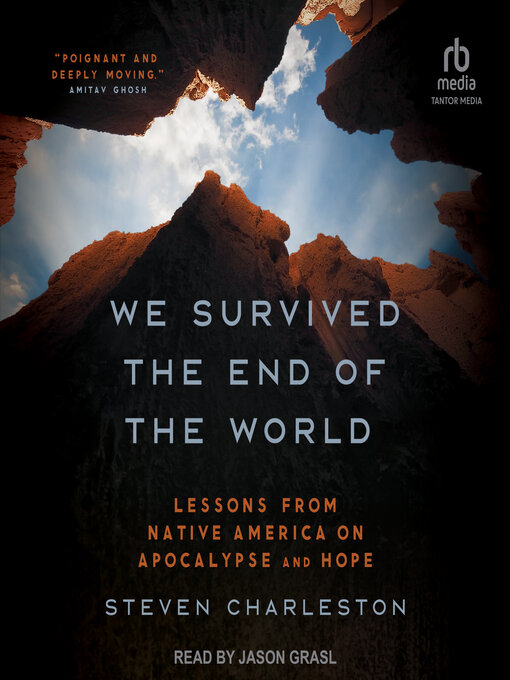- Popular Magazines
- Just Added
- Cooking & Food
- Fashion
- Health & Fitness
- Home & Garden
- News & Politics
- See all magazines collections
We Survived the End of the World
Lessons from Native America on Apocalypse and Hope
Pandemics and war, social turmoil and corrupt governments, natural disasters and environmental collapse—it's hard not to watch the signs of the times and feel afraid. But we can journey through that fear to find hope. With the warnings of a prophet and the lively voice of a storyteller, Choctaw elder and author of Ladder to the Light Steven Charleston speaks to all who sense apocalyptic dread rising around and within.
You'd be hard pressed to find an apocalypse more total than the one Native America has confronted for more than four hundred years. Yet Charleston's ancestors are a case study in the liberating and hopeful survival of a spiritual community. Charleston points to four Indigenous prophets who helped their people learn strategies for surviving catastrophe. Through gestures such as turning the culture upside down, finding a fixed place on which to stand, listening to what the earth is saying, and dancing a ghostly vision into being, these prophets helped their people survive. These ancestors' words reach across centuries to help us live through apocalypse today with courage and dignity.
-
Creators
-
Publisher
-
Release date
June 18, 2024 -
Formats
-
OverDrive Listen audiobook
- ISBN: 9798350840674
- File size: 124881 KB
- Duration: 04:20:09
-
-
Languages
- English
-
Reviews
-
Publisher's Weekly
June 12, 2023
In this perplexing hybrid of self-help and Native American history, Charleston (Ladder to the Light), a retired Episcopal bishop and citizen of the Choctaw Nation, responds to climate change, Covid-19, and other global crises by invoking the wisdom of Indigenous leaders whose communities struggled against white settlement. Drawing on the experiences of Ganiodaiio, a Seneca warrior and diplomat, who was known to white Americans as Cornplanter, Charleston urges readers to embrace individual accountability while simultaneously working for the common good. Following the ideas of Tenskwatawa, the “Shawnee Prophet,” he calls on readers to build communities based on mutual respect. The example of Nez Perce shaman Smohalla emphasizes the importance of treating the environment as a living being rather than a resource for humans, while that of the Paiute Ghost Dancer Wovoka urges people to overcome fear and hatred of their opponents and strive for reconciliation. Unfortunately, Charleston doesn’t offer specifics about how one might transform these sensible attitudes into strategies for individual and communal activism, and his historical research often comes up short, as when he describes early 19th-century Native Americans as having “a very libertarian existence.” Readers will be disappointed.
-
Formats
- OverDrive Listen audiobook
subjects
Languages
- English
Loading
Why is availability limited?
×Availability can change throughout the month based on the library's budget. You can still place a hold on the title, and your hold will be automatically filled as soon as the title is available again.
The Kindle Book format for this title is not supported on:
×Read-along ebook
×The OverDrive Read format of this ebook has professional narration that plays while you read in your browser. Learn more here.

